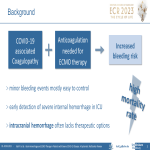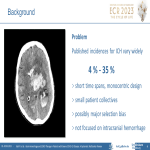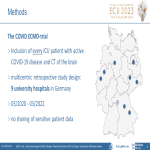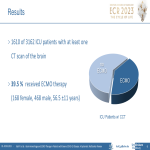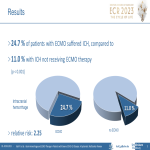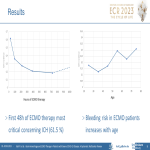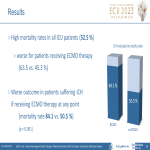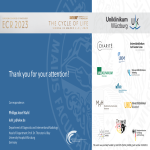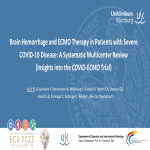Keywords:
CNS, Neuroradiology brain, Respiratory system, CT, Diagnostic procedure, Outcomes analysis, Haemorrhage, Infection, Inflammation
Authors:
P. J. Kuhl, P. Gruschwitz, H. Nebelung, C. Ehrengut, R. Rischen, Q. D. Strotzer, N. Kornemann, B. Valentin, T. A. Bley
DOI:
10.26044/ecr2023/C-21077
Methods and materials
- COVID-19-associated coagulopathy in combination with therapeutic anticoagulation needed for ECMO therapy leads to an increased bleeding risk.
- While minor bleeding events (e.g. at the entry sites of ECMO cannulas) can usually be easily controlled, and lager internal bleedings mostly are detected early in ICU, intracranial hemorrhage often lacks therapeutic options.
Recently published incidences for ICH in COVID-19 patients undergoing ECMO therapy vary widely from 4 % to 35 %, mostly due to
- short time spans
- monocentric study designs
- small patient collectives
- selection bias
- focus not on intracranial hemorrhage
To evaluate the incidence of ICH in COVID-19 patients undergoing ECMO therapy, the COVID ECMO-trial was initiated
- Multicentric retrospective study at 9 university hospitals in Germany.
- Inclusion of every COVID-19 patient in ICU who underwent at least one CT scan of the brain in the period march 2020 to april 2022.
- CT scans were analyzed at respective study sites, so no sharing of sensitive patient data was necessary.


